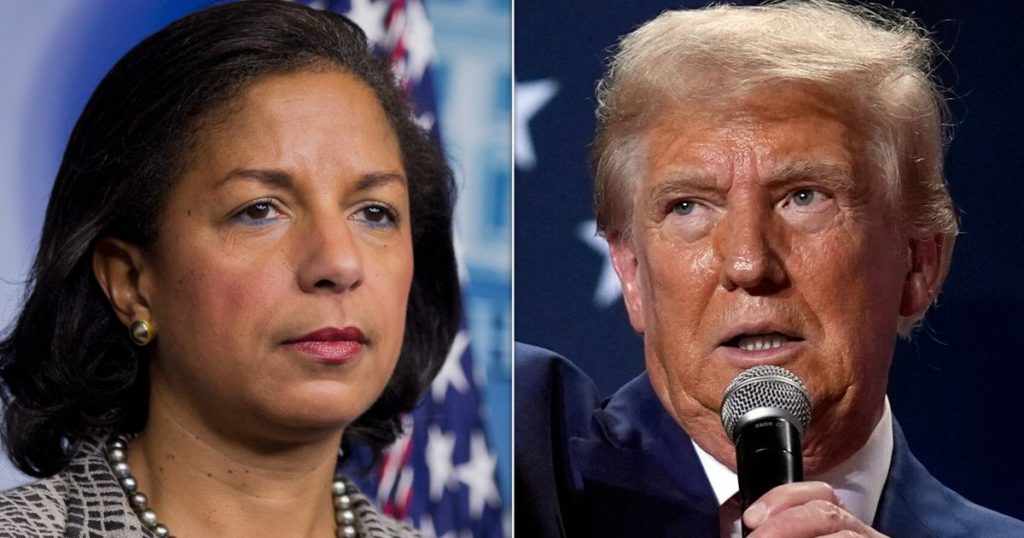Former U.S. national security adviser Susan Rice criticized Donald Trump’s foreign policy agenda, accusing him of appeasing Russian President Vladimir Putin during the invasion of Ukraine. She compared Trump to Neville Chamberlain, calling him an appeaser and surrender monkey. Rice cited examples of Trump folding to leaders like Xi Jinping when it served his personal interests. She mentioned a letter signed by over 700 national security leaders supporting Vice President Kamala Harris over Trump. Rice, who described Trump as an appeaser, believes Harris would be a strong commander-in-chief.
Trump’s spokesperson dismissed the criticism, labeling the signatories of the letter as people who profited from endless foreign wars while Americans suffered. Rice emphasized the need for a bipartisan approach to national security, noting a responsible center between Democrats and Republicans in the past. She believes Harris has the temperament, intellect, vision, and experience to be an effective commander-in-chief on day one. Rice’s critique of Trump’s foreign policy stems from his perceived weakness towards authoritarian leaders like Putin, which she views as detrimental to America’s strength and values.
Rice highlighted Trump’s history of praising leaders like Xi Jinping and his failures to stand with allies or uphold American values. She likened his approach to appeasement to Chamberlain’s failed policy before World War II. The letter supporting Harris was signed by current and former defense officials from both parties, including Republicans like Chuck Hagel and William Cohen. Rice’s comparison of Trump to an appeaser underscores her belief in the need for strong leadership and a clear stance against aggressors like Putin.
The New York Times reported Trump’s spokesperson pushing back against the letter signatories, accusing them of contributing to endless foreign wars. However, Rice maintained that national security should transcend party lines and that Harris would be a strong commander-in-chief. She stressed the importance of having a responsible and rational center in foreign policy, implying that Trump’s approach lacks these qualities. By drawing parallels between Trump and appeasers like Chamberlain, Rice seeks to highlight the danger of caving to aggressors and the importance of standing firm for American interests.
Rice’s critique of Trump’s foreign policy focuses on his perceived weaknesses in dealing with authoritarian leaders like Putin and Xi Jinping. She believes Trump’s appeasement approach undermines America’s strength, values, and relationships with allies. The letter supporting Harris over Trump was signed by a diverse group of national security leaders from different political backgrounds, emphasizing the need for bipartisan unity in national security. Rice’s comparison of Trump to Chamberlain underscores her belief in the dangers of appeasement and the necessity of strong leadership to counter threats to American interests.
Whether or not the criticism from Rice and other national security leaders will impact Trump’s standing with voters remains to be seen. However, the debate over Trump’s foreign policy and approach to national security highlights the ongoing tensions within American politics and the need for strong and principled leadership in navigating complex global challenges. Rice’s emphasis on the importance of standing firm against aggressors like Putin and her support for Harris as a strong commander-in-chief reflect broader concerns about America’s place in the world and the values that should guide its foreign policy decisions.













